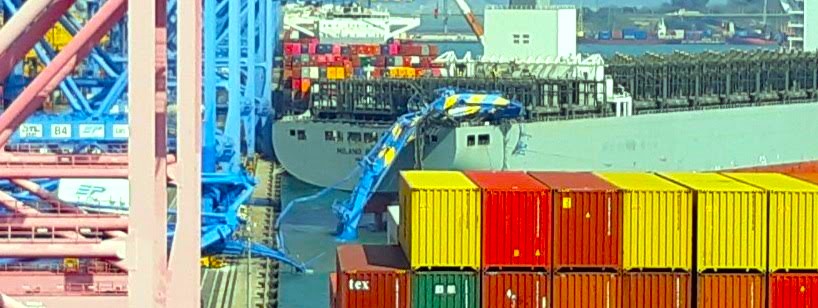NVOCC vs. Freight Forwarder
What’s the Difference?
If you’re new to international shipping, you might be confused by the various terms used for service providers that handle cargo. For example: NVOCC vs. freight forwarder. What’s the difference between these two kinds of companies? What does each do, and how do you know which one to approach when you have a shipment to arrange?

NVOCC stands for “non-vessel operating common carrier.” An NVOCC is an ocean carrier, providing transportation services almost exactly like a steamship line. The main difference is that a steamship line owns vessels and shipping containers, while an NVOCC does not. Instead, an NVOCC pays steamship lines for the use of their vessels and containers and then makes those assets available to customers with cargo to ship.
NVOCCs (also referred to as NVOs) are bulk buyers of ocean freight capacity. Their clout comes from buying bulk space aboard liners and then selling this real estate at favorable rates to smaller-volume shippers who might otherwise be lost at sea when it comes to negotiating with giant shipping lines directly (Check out our International Shipping Survival Guide for Small Shippers).
A freight forwarder is not a carrier. It’s an agent – a company that performs transactions on behalf of a customer, similar to a real estate agent or an insurance agent. When you have cargo to ship, it works with various service providers, such as ocean carriers, trucking companies, warehouses and customs brokers, to make the arrangements on your behalf. Those other companies perform the actual services. The freight forwarder gives them the necessary information and documentation, orchestrates their work, and keeps track of their progress.
In fact, orchestra conductor is not a bad metaphor for freight forwarders since they coordinate the activities of various providers, ensuring each operates harmoniously with others to create a synchronized supply chain symphony.
Areas of overlap
One reason people often confuse the roles of NVOCCs and ocean freight forwarders is that there’s often a lot of overlap in what they do. While NVOCCs are basically ocean carriers, they often provide freight forwarding services, too. For example, an NVOCC might arrange drayage trucking services to transport your containers to and from port. It can provide special trucking services for heavy or overweight freight. It might also help you with customs clearance agent services.
Essentially, an NVOCC can provide any service a freight forwarder can. But the similarity doesn’t run both ways. NVOCCs do a couple of important things that freight forwarders can’t:
Collected : ICE GLOBAL TRANSPORT
Abbreviation for Non-Vessel-Operating Common Carrier
What is an NVOCC?
NVOCC is originally a North-American term. NVOCC refers to forwarders or transporters with similar sales activity to ship-owners, but who do not actually own any merchant vessels. The solution to this problem lies in renting storage space on boats. Maritime containers are the favoured form of storage for NVOCCs. They purchase them from maritime companies, and sell them back to customers. Those who buy NVOCC storage space are mostly forwarders.
The NVOCC is then in charge of transporting the goods – hence the signature of a transport contract substantiated by a personalised maritime bill of lading. To maximise logistics, the NVOCC groups together the goods belonging to various senders in one or several containers, and dispatches them towards the place of delivery, where the degrouping process can begin. This is why they are known as groupers.
They generally operate during the maritime transport phase, and concludes a storage space contract with the ship-owner. In concrete terms, the Non-Vessel-Operating Common Carrier (NVOCC) signs a transport contract.
Specificities of an NVOCC
This being said, they are liable for the goods – unless they can prove they were not the cause of the damage. NVOCCs are similar to maritime transporters. As such, they deliver a transport contract upon picking up the goods to be conveyed.
NVOCCs guarantee door-to-door logistics.
Their main customers are ship-owners and maritime agents in charge of transport, as well as loaders, forwarders and transport commissioners. Stakeholders within the NVOCC field work autonomously in a worldwide environment.
Their professional responsibility is the same as that of maritime transporters. As such, they are guaranteed payment, and can retain goods with a view to recovering their dues.
